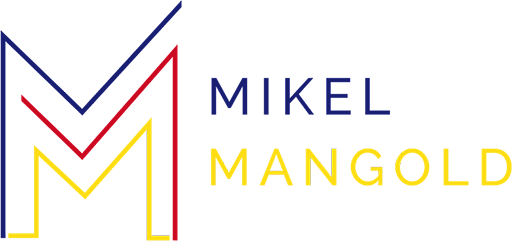As I am heading to San Francisco tomorrow, after two long years, I wanted to reflect on the current startup economy and the change our society is experiencing. The truth is, the model of this flourishing innovation ecosystem is spreading faster than before to other countries because of the current socio-economic influences such as COVID, how politicians support it, and how companies utilize startups as an external resource for innovation.
We know it: the hype of entrepreneurship started in Silicon Valley over 60 years ago.
Silicon Valley is famous for its economic success, and many have documented it (e.g., see the work of AnnaLee Saxenian). The truth is, Entrepreneurship as we know, started in this place around 60 years ago, thanks to the success and spin-outs of Fairchild semiconductor.
Let’s put their success into numbers. The StartupBlink report “Global Startup Ecosystem Rankings 2021” ranked ecosystems of 1,000 cities and one hundred countries. It found that San Francisco and Silicon Valley outperform the rest of the world in terms of the number of startups and innovations. San Francisco Bay (Silicon Valley) was ranked first, scoring 328,966. New York was second (110,777), followed by Beijing (66,749), Los Angeles (58,441), London (56,913), and Boston (49.835). Tel Aviv ranked eighth, Paris eleventh, and Berlin thirteenth out of thousands of cities.
While this is just one study with a specific algorithm, it shows how advanced the region is.
The world is following.
Startup ecosystems are on the rise, and they are freshly new! As of today, the US is still producing 4x more startups vs the second nation on the ranking (UK) and is by far more advanced on entrepreneurship initiatives than the rest of the globe, but it doesn’t mean it will stay like this.
Take my home country, France, for example. President Macron vowed in 2018 to make France a “startup nation” (Alderman, 2018). At Vivatech in 2022, he announced that France wishes to have 100 unicorns by 2030. As a matter of fact, the country had only 1 unicorn and 4 times less external capital to fund startups back in 2015. The same trend is happening in Germany. The number of startups will double annually in the country until 2030. Startups will become the backbone of its economy generating over 1.4 million jobs and boosting economic growth (McKinsey & Company, 2021). In fact, the trend is not only a US, German, or French one. The movement is global.
COVID as an accelerator.
This has to be considered into the equation, COVID changed a lot of things. It forced many professionals to rethink their lives. Many decided to start new companies:
– USA: In Q3 of 2020 alone, there were more than 1.5 million new-business applications in the USA—almost twice the amount for Q3 2019.
– In France, 84,000 new business formations happened in October 2020, the highest ever recorded and 20 percent more than in October 2019.
– Germany also experiences record numbers of new business applications compared with 2019; ditto for Japan.
Since we will have more startups and small businesses worldwide, companies will automatically increase their interaction with them. According to an MIT and Capgemini study (Thompson, Bonnet, and Jaballah, 2020), the innovation coming from the outside world is becoming increasingly relevant for companies:
“Over the next five years, startups will rank as top innovation sources for companies. Moreover, hybrid forms such as innovation labs are essential for the interface between internal and external innovation. It is even more relevant for companies that do not have to innovate internally. Many are forced to source externally. As a result of this development, traditional R&D and internal business units’ employees will become less relevant as innovation sources within the next five years.”
The point is, it is only the beginning of an economic age where collaboration, dominates. For that, we need more people to be able to think, work, and thrive in these new environments. Is the world and the workforce ready for it?
Source:
https://www.mckinsey.com/featured-insights/leadership/the-next-normal-arrives-trends-that-will-define-2021-and-beyond.
https://www.startupblink.com/blog/global-startup-ecosystem-index/#:~:text=StartupBlink%20has%20launched%20the%202021,startup%20ecosystem%20from%202017%20onwards.
https://www.capgemini.com/wp-content/uploads/2020/05/MIT-INVENT-Report_NEW-2020.pdf
https://www.ft.com/content/fda6ced0-8706-11dc-a3ff-0000779fd2ac
https://www.nytimes.com/2018/05/23/business/emmanuel-macron-france-technology.html
https://www.youtube.com/watch?v=n78HTI2ZuGw
https://www.mckinsey.de/~/media/mckinsey/locations/europe%20and%20middle%20east/deutschland/news/presse/2021/2021-10-26%20entrpreneurship%20zeitgeist%202030/entrepreneurship_zeitgeist_2030_mckinsey_vf.pdf

